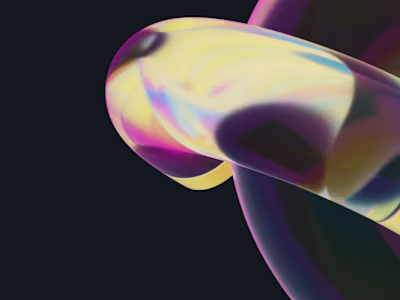Literary Analysis Essay | Waiting for Godot by Samuel Beckett
An Existentialist Examination on Waiting for Godot by Samuel Beckett
Waiting for Godot is one of the most important examples of existential philosophy of its time and analyzed by many critics. Yet Samuel Beckett, the writer of the play, declined to talk about the meaning of his work and said in Essays on Samuel Beckett's Later Works that: ..."My work is a matter of fundamental sounds (no joke intended), made as fully as possible, and I accept responsibility for nothing else. If people want to have headaches among the overtones, let them. And provide their own aspirin" (Davis 20). The play is considered existentialist because the characters he depicted are lonely in a world without purpose and the only thing they do is wait for him, Godot, who is thought of as their saviours. German philosopher Günther Anders plainly says that Beckett's protagonists, Vladimir and Estragon in Waiting for Godot among other plays, are a reflection of humanity in general. He states that “the fabulae personae whom Beckett selects as representative of today’s mankind can only be clochards, creatures excluded from the scheme of the world who have nothing to do any longer, because they do not have anything to do with it” (Esslin 142). It is also considered Christian because the characters are in search of salvation; considered Marxist because the characters are estranged from capitalist society and are in a political alienation situation and considered Freudian for the reason that Estragon typifies the ‘id’ and Vladimir typifies the ‘ego’. Samuel Beckett said that ...“The great success of Waiting for Godot had arisen from a misunderstanding: critic and public alike were busy interpreting in allegorical or symbolic terms a play which strove at all costs to avoid definition” (Ben-Zvi 142). In the absurdist fiction Waiting for Godot written by Samuel Beckett in 1949, there are several important matters to be taken into consideration about the existentialist perspective which can be seen in the whole work based on first-hand interpretation of the character developments, dialogues and actions along with the ideas, comments and other works of Samuel Beckett and the critics of the play.
If the main characters of the play are to be analyzed, it can be said that Vladimir is the predominant one in the friendship of the two. He is intellectual and contemplative contrary to Estragon who is more sentimental and concerned with mundane issues. Estragon mostly relies upon Vladimir, and lets him choose what they eat, what they do and where they go. It can be interpreted from the actions of the two that Vladimir is more determined to wait for Godot, Estragon only follows his lead. He usually forgets about the past, the conversations they have, the people he meets and even who they are waiting for and why they are waiting: …'’His name is Godot?’’ (Beckett 13).
Vladimir: Let’s wait and see what he says.
Estragon: Who?
Vladimir: Godot.
Estragon: Good idea.
Vladimir: Let’s wait till we know exactly how we stand.
Estragon: On the other hand it might be better to strike the iron before it freezes
(Beckett 13).
It is seen in the dialogue that Vladimir is dependent on Godot to say what he has to know about his life, while Estragon states that he has no time to wait and that he must act by himself before it is too late. The cooling iron metaphor gives the impression that Estragon thinks that they do not have time to wait for spiritual concerns to provide them illumination and the opportunity is passing.
Estragon: Charming spot. (He turns, advances to front, halts, facing auditorium.)
Inspiring prospects. (He turns to Vladimir.) Let’s go:
Vladimir: We can’t.
Estragon: Why not?
Vladimir: We’re waiting for Godot.
Estragon: (despairingly). Ah!
(Beckett 8).
Estragon's existential philosophy of human experience is what he aims at in his wish to leave for "inspiring prospects," and Vladimir's proposal to wait and to be enlightened by Godot is innate to the human tendency to wait for religion to give responses. Freud said “The ego is that part of the id which has been modified by the direct influence of the external world.”(Freud 25). Vladimir and Estragon’s relationship can be associated with his analogy of the id being a horse while the ego is the rider. The ego is 'like a man on horseback, who has to hold in check the superior strength of the horse' (Freud 15). That might be the reason why Vladimir continuously shows Estragon his dependence to him: ’’When I think of it... all these years... but for me... where would you be... (Decisively.) You'd be nothing more than a little heap of bones at the present minute, no doubt about it’’ (Beckett 3).
Vladimir: What does he do, Mr. Godot? (Silence.) Do you hear me?
Boy: Yes Sir.
Vladimir: Well?
Boy: He does nothing, Sir. (Silence.)
Vladimir: How is your brother?
Boy: He’s sick, Sir.’’
(Beckett 106).
Vladimir questions the boy about Godot, but never questions the reliability of the information given to him by the boy. He changes the subject suddenly but it would be more rational to press the issue when the suspicious answer is received that Godot does nothing. Beckett seems to be making a statement on the case of blind religion. For instance, Christians are instructed not to question God's will and take it as it comes. In parallel with Vladimir and the boy, this notion appears to suggest that a blind belief in religion is just as meaningless as the blind belief in Vladimir that Godot is going to come based on what the boy says to him. At the outset of the first act, Estragon tries to tell Vladimir what he dreamed of right after he took a nap. Vladimir keeps saying that he should keep it to himself, and then Estragon asks ironically pointing at the sky, "This is good enough for you?" (10). The accompanying speechlessness distinguishes this quotation from the others, referring to the notion of gazing at the metaphysical, the cosmos, as a means of thinking about the nature of existence. Estragon would like to talk to Vladimir about his dream and perhaps become more clarified about the physical experiences through explanation. Beckett appears to be using this as a way to emphasize the idea that the experiences we gain ourselves are more important than overthinking a realm which is beyond human understanding and assurance, as a way of exploring deeper meanings. By saying that, Vladimir should pay attention to Estragon's dream, which focuses on the human condition that only humans can comprehend, instead of gazing beyond the world he will never understand. There are also other characters in the play called Pozzo and Lucky, who are in a master and slave relationship. The relationship which is seen in the first scene between Pozzo and Lucky is an indication of the idea that mankind ought to initially consider other things than religion as a basis of the essence of life. The interaction in the first scene between Pozzo and Lucky represents the bond between certain people and their faith. When Estragon asks why Lucky does not free himself from the pressure, Pozzo answers with the statement saying it is because Lucky tries to please him, so he does not go on sale at the fair. This shows how a faithful person will experience some inconvenience, such as getting out of bed early every Sunday to go to church, in to appease greater beings, to obtain everlasting happiness in the hereafter. The second act shows that at least one of Lucky's bags has sand-packed. With this in mind, it may be inferred that the needless essence of Lucky's sandbag is a sign of the unnecessary responsibility which many religious people hold in their different rites of worship to please their ruler. It may also be concluded that the case with Pozzo and Lucky is Beckett's effort to state that religious traditions have no real function, that they are of undue importance to prevent them from seeing the illumination of the material realm.
While Kierkegaard, Sartre and Camus all refer to the absurdity and insignificance of life, they all refer to very different worldviews. Camus touches on the unimportance of life by stating the word ‘absurd’ in The Myth of Sisyphus. The absurd comes with the knowledge that the world is unreasonable: “At this point of his effort, man stands face to face with the irrational. He feels within him his longing for happiness and reason. The absurd is born of this confrontation between the human need and the unreasonable silence of the world” (Camus 28). Sisyphus is defined as the man who takes the punishment for carrying a rock up to a mountain by pushing, whereby the rock would fall back because of its weight and the action has to be done over and over again. Just like it happens in Waiting for Godot, Vladimir and Estragon, the two main characters, have an absurd obligation to wait for the absurd entity called Godot, who can give them the hope they need. They have nothing to do, nothing to talk about except waiting, even though it looks stupid and illogical, they keep the promise of waiting. "The Gods had condemned Sisyphus to ceaselessly rolling a rock to the top of a mountain, whence the stone would fall back of its own weight. They had thought with some reason that there is no more dreadful punishment than futile and hopeless labour" (Camus 396). The play is about Vladimir, Estragon and their miserable waiting for hope to appear. Hope is depicted as a form of salvation, in the characters Pozzo and Lucky or even in dying. The topic of the play soon becomes an example of how to kill time in a situation that offers no hope. The insignificance and emptiness of life in the play have influenced the life of the main characters. The play is also a good example of Friedrich Nietzsche’s concept of eternal recurrence; the belief that all world events in an infinite chain of loops recreate themselves in the very same order. Nietzsche said that:
"Whoever thou mayest be, beloved stranger, whom I meet here for the first time, avail thyself of this happy hour and of the stillness around us, and above us, and let me tell thee something of the thought which has suddenly risen before me like a star which would fain shed down its rays upon thee and every one, as befits the nature of light. – Fellow man! Your whole life, like a sandglass, will always be reversed and will ever run out again, – a long minute of time will elapse until all those conditions out of which you were evolved return in the wheel of the cosmic process. And then you will find every pain and every pleasure, every friend and every enemy, every hope and every error, every blade of grass and every ray of sunshine once more, and the whole fabric of things which make up your life. This ring in which you are but a grain will glitter afresh forever. And in every one of these cycles of human life there will be one hour where, for the first time one man, and then many, will perceive the mighty thought of the eternal recurrence of all things:– and for mankind this is always the hour of Noon" (Nietzsche 249).
In the novel, the statement "waiting for Godot" is especially replicated frequently, giving a larger relevance each time the statement is provided in the Eternal Return. Beckett does not say, yet demonstrates the audience by repeating the script to make them perceive the theory of the Eternal Return. When the reader initially reads the sentence, they do not attempt to interpret the context since the sentence has happened only once. Since the short statement, "waiting for Godot," is reiterated several times, the reader continues to follow the essence of the statement and sees the sentence more meaningful after each successive time. Therefore: Beckett suggests that the presence of meaning linked to the Eternal Return only becomes more apparent after the loop of Eternal Return begins. Vladimir, one of the main characters, says: “Wait… we embraced… ah! The tree!” (Beckett 42). Here, Vladimir tries to look for an explanation for a singular thing that requires little sense to comprehend because he assumes that a previous occurrence may make sense. In Waiting for Godot, Samuel Beckett demonstrates a disputable and extremely obscure dimension of existentialism that, in the end, leaves the reader in a state of questioning the existence.
To sum up, Beckett tried to make his audience think about the terms time, memory, existence, past and reality by creating these characters who are stuck somewhere, waiting for nothing. It can be said that neither of them has meaning or importance. Relying upon illusions and made-up things and looking for a meaning to get hope in our insignificant lives are futile. Samuel Beckett questions people who attempt to explain something by seeking sense when comprehension, in fact, demands an absence of meaning. Actually, the character Lucky is us all, everyone is at risk of being him. Most of us can be dominated by other individuals, social systems, religion and other things, on the other hand, most of us consent to recycle the perceptions and opinions of others rather than to create our own. Waiting for Godot still has a lot of relevance today because Beckett tried to make his audience aware, demonstrate how to maintain a life without sense or reason.He also encouraged people to ponder about it and then understand how they, too, are Estragon, Vladimir or Lucky.
WORKS CITED
Anderson, R. Lanier, "Friedrich Nietzsche", The Stanford Encyclopedia of Philosophy (Summer 2017 Edition), Edward N. Zalta (ed.),
Beckett, Samuel. Waiting for Godot: Tragicomedy in 2 Acts. Faberand Faber, 1986.
Ben-Zvi, Linda. Samuel Beckett. Boston: G.K. Hall&Co, 1986, p. 142.
Brannen, Jake. “Existentialism in Samuel Beckett's Waiting for Godot. Owlcation”. 6 Jan. 2013,
Camus, Albert. The Myth of Sisyphus and Other Essays, New York: Vintage Books, 1955.
Davis, Robin. J. Make Sense Who May: Essays on Samuel Beckett's Later Works. Smythe, 1988, p. 20.
Esslin, Martin. Samuel Beckett: a Collection of Critical Essays. Prentice-Hall, 1965, p. 142.
Freud, Sigmund. et al. The Ego andtheId (1923). HogarthPress, 1964, pp. 15-25.
Like this project
Posted Jul 8, 2024
This essay provides a comprehensive literary analysis of Samuel Beckett's "Waiting for Godot" exploring the themes of existentialism and the search for meaning.
Likes
0
Views
15






